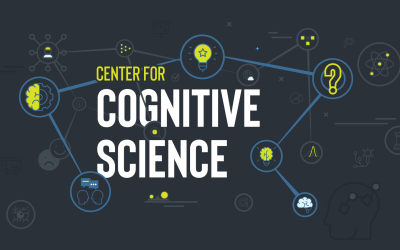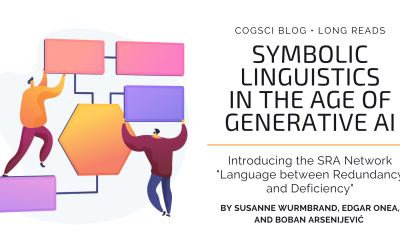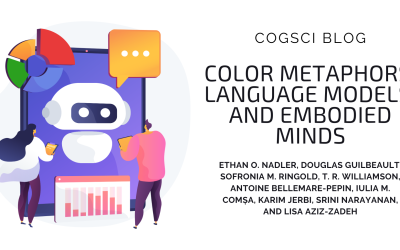Featured image by Natalia Vélez
Every year, the MacArthur Foundation awards “Genius Grants” to “talented individuals who have shown extraordinary originality and dedication in their creative pursuits and a marked capacity for self-direction.” This year, cognitive scientist Joshua Tenenbaum was among the 26 recipients to receive the $625,000, no-strings-attached award. By using both computational models and behavioral experiments, Tenenbaum has advanced our understanding of human perception, learning, and reasoning.
We asked some of Josh Tenenbaum’s collaborators to weigh in on his contributions to our understanding of cognition. Here’s what they shared.
Nick Chater wrote:
Josh Tenenbaum has helped revolutionize our understanding of the incredible power of human learning and inference. His interests are incredibly broad, running across almost every area of cognitive processing, from perception and language acquisition to planning, reasoning, and moral psychology—but they are, at the same time, strikingly deep. In each area, he helps rethink fundamental questions at the heart of our field.
One of his core themes has been, as he puts it, to understand how we can learn so much from so little: how, for example, the brain can extrapolate successfully from one or a few instances, to build rich categories and theories. This has required pushing the scope of Bayesian models far beyond their normal boundaries—so that his work is not just cutting edge cognitive science, but has also pushed back the frontiers of artificial intelligence
From Fei Xu:
Tenenbaum is a visionary scientist who has helped to create a whole new school of thought in cognitive science – the approach involving Bayesian inference of probabilistic models. This school, in which Tenenbaum has synthesized key perspectives from machine learning and Bayesian statistical inference, is providing fundamental new insights into the deepest questions humans have ever asked themselves: the origins of human knowledge and the nature of human cognition.
Tenenbaum’s research, along with others’, revived one of the key questions about human reasoning and human learning: Are we rational beings, in the sense of reasoning in accordance with normative models such as logic, probability theory, and decision theory? Furthermore, should we study cognition by comparing human performance against a normative ideal? The body of work generated by Tenenbaum, his collaborators, and his students suggests ‘yes’ to both questions. In the last two decades, Tenenbaum has produced an impressively large body of research — theoretical, empirical, and computational – arguing strongly that ordinary human beings’ reasoning capacities may be captured by normative models, in particular Bayesian probabilistic models. His work has profound implications for the study of human cognition and learning, AI, philosophy of science, and epistemology.
Alison Gopnik shared:
Specifically, Tenenbaum has applied insights from Bayesian statistical inference to solve some of the classic problems in cognitive science: How do we discover the causal structure of the world, or predict the future, from the sparse data sets derived form of our individual experience? How do children determine the meaning of words (from the infinite set of hypotheses consistent with the available data)? How do we discover structure in noisy data sets, without having to assume some framework in advance? How can we formalize everyday physics and psychology in a way that will allow us to make the right inferences about future events?
In each of these domains Tenenbaum has developed computational models that prominently feature two key elements treated as mutually exclusive in most prior research: 1) statistical and probabilistic learning, and 2) background knowledge and structured representations.
And from Mike Frank:
Questions about learning, representation, and the structure of knowledge are some of the deepest and most exciting in the cognitive sciences, but because they are so abstract they can feel inaccessible or impossible to tackle. By making deep links between cognitive development and artificial intelligence, Josh Tenenbaum’s work has brought these questions back into the forefront of inquiry across these fields. A generation of researchers have been energized by this agenda and now use formal methods – often developed by Josh and his collaborators – to tackle these big questions. Josh is a true cognitive scientist and a model of how interdisciplinary thought can inspire researchers across all the fields it draws from.
The CSS congratulates Josh Tenenbaum on this well-deserved recognition of his significant contributions to the field of cognitive science. We look forward to seeing how he and others build on this work to expand our understanding of cognition.
Featured image by Natalia Vélez



